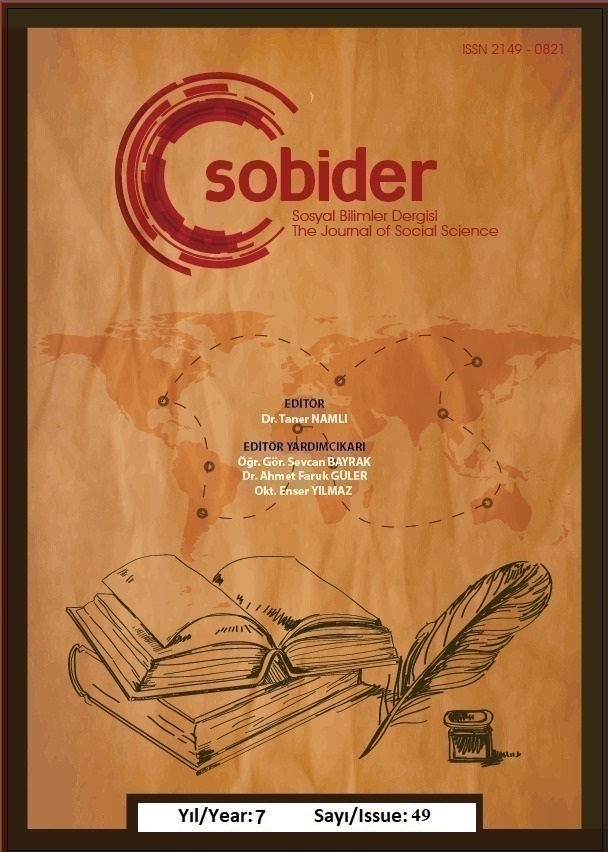Author :
Abstract
Geç dönem Orta Çağ Avrupa’sında Hıristiyanlığın kiliseler aracılığıyla kurumsallaşarak güç kazanmaya başladığı anlardan itibaren, dünyevi otoritenin temsilcisi olan kral ile ruhani otoritenin temsilcisi olan papa arasında bir güç mücadelesi başlamıştır. Yönetim konusunda mutlak iradenin kimde olduğu sorununa yönelik papalığın savı şudur; biri ruhani diğeri dünyevi olanı yönetmenin aracı olarak iki kılıç vardır ve bu kılıçlar kilise erkine aittir. Dolayısıyla dünyevi otoriteyi temsilen kralın otoritesi de ruhani otoriteye bağımlı olmalıdır. Ancak krallar bu sava karşılık, dünyevi konular söz konusu olduğunda kendilerinden başka bir otorite tanımadıklarını dile getirerek iki kılıç kuramı olarak da bilinen bu teze karşı çıkmış, herhangi bir aracıya gerek duymadan iktidarlarını doğrudan tanrıdan aldıklarını iddia etmişlerdir. Bu türden bir tartışma ve fiili çekişme ortamı otoritenin meşruiyeti, yasaların kaynağı ve özellikle de laiklik yönünde atılmış ilk adımları da kapsayacak şekilde düşünsel alana sıçramıştır. Bu temelde çalışma bu ikili çatışma ortamında öne çıkan, modern devlet anlayışını da önceleyen kimi düşünürlere odaklanmıştır.
Keywords
Abstract
Starting from the time when Christianity became institutionalised through church and gained power in Europe during the latter stages of medieval age, a power struggle took place between the king, representative of earthly authority and pope, representative of spiritual authority. Papal thesis towards the owner of absolute power in administration is that there are two swords used as tools to administer the earthly matters and spiritual matters and both of these swords belong to the church. Therefore, the authority of the king, the earthly ruler, must depend on the spiritual authority. But the kings on the other hand argued that they do not recognize any other power than themselves when it comes to the matters of this world and refused this thesis also known as two-swords theory. According to the kings, they were granted with power directly by God, without the need of any middle-man. Such an environment of dispute and actual conflict spread to the intellectual field covering the legitimacy of power, source of laws and particularly the first steps taken towards secularism. Under the light of these, this study has focused on some philosophers who became prominent in this environment of mutual dispute and who prioritizedthe idea of modern state.
Keywords
- Ağaoğulları, M. A. ve Köker, L. (1997). Tanrı Devletinden Kral Devlete, Ankara: İmge Kitabevi Yayınları.
- Ağaoğulları, M. A. ve Köker, L. (2004). İmparatorluktan tanrı devletine, Ankara: İmge
- Arıstoteles. (2010). Politika, (M. Tunçay, Çev.). İstanbul: Remzi Kitabevi
- Bloch, M. (1983). Feodal Toplum, (M. A. Kılıçbay, Çev.). Ankara: Gece Yayınları.
- Heınısch, K. J. (1968). Kaiser Friedrich II. in Briefen und Berichten Seiner Zeit, Darmstadt: Wissenschaftliche Buchges.
- Houben, H. (2009). Kaiser Friedrich II.: 1194-1250 : Herrscher, Mensch und Mythos, Stuttgart: W. Kohlhammer Verlag.
- Huberman, L. (1974). Feodal Toplumdan Yirminci Yüzyıla, (M. Belge, Çev.). İstanbul: Bilim Yayınları
- Le Goff, j. (2015) Orta Çağ Batı Uygarlığı, (H. Güven, U güven Çe. ) Ankara: Doğubatı Yayınları.
- Marsilius, P. (2012). Barış Savunucusu (M. Tunçay, çev.) Batıda Siyasal Düşünceler Tarihi, Eski ve Orta Çağlar, İçinden (der. M. Tunçay) İstanbul Bilgi Üniversitesi Yayınları, , s.469-488
- Poggı, G. (2007). Modern Devletin Gelişimi-Sosyolojik bir Yaklaşım, (Ş. Kut, B. Toprak, Çev). İstanbul: İstanbul Bilgi Üniversitesi Yayınları.
- Russ, J. (2014). Avrupa Düşüncesinin Serüveni, Antik Çağlardan Günümüze Batı Düşüncesi, (Ö. Doğan, Çev.). Ankara: Doğubatı Yayınları.
- Sabıne, G. (1969). Siyasal Düşünceler Tarihi, Eski çağ-Orta çağ, 1.cilt, (H. Rızatepe, Çev.). Ankara: Türk Siyasi ilimler Derneği Yayını.
- Tannenbaum, D. G. ve Schultz, D. (2011). Siyasi Düşünce Tarihi, (F. Demirci, Çev.). Ankara: Adres Yayınları.
- Tunçay, M. (2012). Batı’da Siyasal Düşünceler Tarihi, Seçilmiş Yazılar, Eski ve Orta Çağlar İstanbul: İstanbul Bilgi Üniversitesi Yayınları
